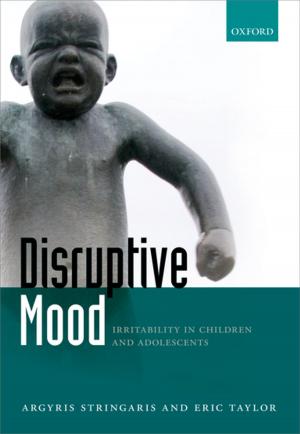Happiness Around the World
The paradox of happy peasants and miserable millionaires
Nonfiction, Social & Cultural Studies, Political Science, Government, Social Policy, Religion & Spirituality, Philosophy, Business & Finance| Author: | Carol Graham | ISBN: | 9780191609480 |
| Publisher: | OUP Oxford | Publication: | December 17, 2009 |
| Imprint: | OUP Oxford | Language: | English |
| Author: | Carol Graham |
| ISBN: | 9780191609480 |
| Publisher: | OUP Oxford |
| Publication: | December 17, 2009 |
| Imprint: | OUP Oxford |
| Language: | English |
For centuries the pursuit of happiness was the preserve of either the philosopher or the voluptuary and took second place to the basic need to survive on the one hand, and the pressure to conform to social conventions and morality on the other. More recently there is a burgeoning interest in the study of happiness, in the social sciences and in the media. Can we really answer the question what makes people happy? Is it really grounded in credible methods and data? Is there consistency in the determinants of happiness across countries and cultures? Are happiness levels innate to individuals or can policy and the environment make a difference? How is happiness affected by poverty? By economic progress? Is happiness a viable objective for policy? This book is an attempt to answer these questions, based on research on the determinants of happiness in countries around the world, ranging from Peru and Russia to the U.S. and Afghanistan. The book reviews the theory and concepts of happiness, explaining how these concepts underpin a line of research which is both an attempt to understand the determinants of happiness and a tool for understanding the effects of a host of phenomena on human well being. The research finds surprising consistency in the determinants of happiness across levels of development. Yet there is still much debate over the relationship between happiness and income. The book explores the effects of many mediating factors in that relationship, ranging from macroeconomic trends and democracy to inequality and crime. It also reviews what we know about happiness and health and how that relationship varies according to income levels and health status. It concludes by discussing the potential - and the potential pitfalls - of using happiness surveys to contribute to better public policy.
For centuries the pursuit of happiness was the preserve of either the philosopher or the voluptuary and took second place to the basic need to survive on the one hand, and the pressure to conform to social conventions and morality on the other. More recently there is a burgeoning interest in the study of happiness, in the social sciences and in the media. Can we really answer the question what makes people happy? Is it really grounded in credible methods and data? Is there consistency in the determinants of happiness across countries and cultures? Are happiness levels innate to individuals or can policy and the environment make a difference? How is happiness affected by poverty? By economic progress? Is happiness a viable objective for policy? This book is an attempt to answer these questions, based on research on the determinants of happiness in countries around the world, ranging from Peru and Russia to the U.S. and Afghanistan. The book reviews the theory and concepts of happiness, explaining how these concepts underpin a line of research which is both an attempt to understand the determinants of happiness and a tool for understanding the effects of a host of phenomena on human well being. The research finds surprising consistency in the determinants of happiness across levels of development. Yet there is still much debate over the relationship between happiness and income. The book explores the effects of many mediating factors in that relationship, ranging from macroeconomic trends and democracy to inequality and crime. It also reviews what we know about happiness and health and how that relationship varies according to income levels and health status. It concludes by discussing the potential - and the potential pitfalls - of using happiness surveys to contribute to better public policy.















